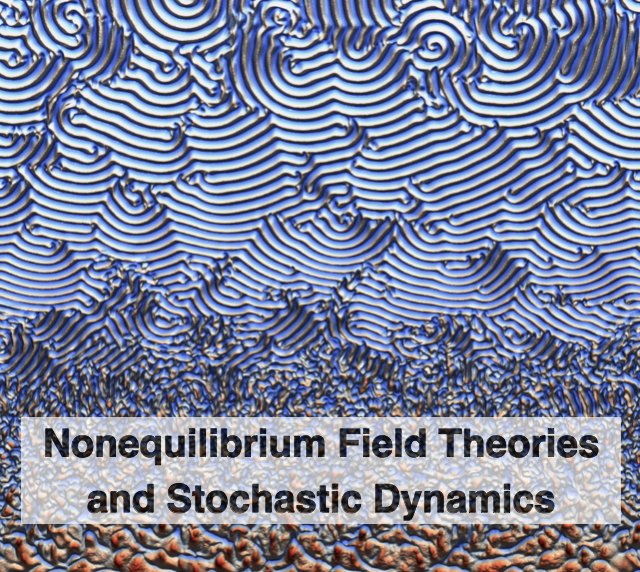The program covers the physics of biological
macromolecules: Protein Structure, Function and Folding, DNA & RNA, Polymer
Physics & Single Molecule Mechanics, Filaments & Motors, Complex
Macromolecular Solutions
Students should be part of the physics masters programm.
Basic knowledge in undergraduate physics, in particular statistical physics is
required.
- Trainer/in: Agathe Jouneau
- Trainer/in: Bernhard Kirchmair
- Trainer/in: Joachim Rädler
How could the physics and chemistry of the early Earth create the first living molecular evolution?
We will highlight recent progress in reconstructing the first RNA replicating systems under the physics of conditions. Emphasis will be placed on providing an overview of the relevant biophysical mechanism effects and the latest biochemical mechanisms. We will present and critically comment on the most recent topics and give a hands-on introduction to this emerging highly interdisciplinary field. Connections will be made to the work being done in the CRC 392 Molecular Evolution in Prebiotic Conditions (www.molecular-evolution.de) and the Origins Cluster.
The lecture will last 2 hours and is worth 3 ECTS
points. The course is aimed at Masters students and is open to other
disciplines such as Geosciences and Chemistry. It combines well with the
seminar on the physics of early life.
- Trainer/in: Paula Aikkila
- Trainer/in: Dieter Braun
- Trainer/in: Felix Dänekamp
- Trainer/in: Alexander Floroni
- Trainer/in: Christof Mast
- Trainer/in: Zsófia Meggyesi
- Trainer/in: Almuth Schmid
- Trainer/in: Sai Wunnava Venkata
Student talks about current methods and
developments in single molecule biophysics, followed by Q&A.
This course is directed at Master’s students in physics.
Type: “Block seminar”, 1-2 full days of talks during the June 2nd and/or June
3rd (exact dates to be decided during Kick-Off meeting)
Content: Every student prepares a 40-minute presentation on a biophysical
method of their choice (select from a list) with 20 minutes Q&A
Kick-Off meeting: On May 5, 10:00, Room N110 the list of topics will be
presented and students may choose which to work on.
3 ECTS will be awarded for full participation (attending the whole event,
presenting an own talk + active participation in Q&A of the other talks)
- Trainer/in: Martin Benoit
- Trainer/in: Heinrich Grabmayr
- Trainer/in: Ralf Jungmann
- Trainer/in: Onurcan Bektas
- Trainer/in: Mario Bühler
- Trainer/in: Pascal De Jong
- Trainer/in: Alina Fantauzzi
- Trainer/in: Paul Kopold
- Trainer/in: Daniel Pals
- Trainer/in: Steffen Rulands
- Trainer/in: Tim Liedl
- Trainer/in: Theobald Lohmüller
- Trainer/in: Gregor Posnjak
This lecture explores the fundamental principles
and advanced concepts of nonequilibrium field theories and stochastic dynamics.
The course focuses on stochastic processes in particle and field systems,
emphasizing mathematical formalisms such as Langevin equations, Fokker-Planck
equations, and path integrals. Additionally, we will discuss applications in
soft matter physics, active matter, and non-equilibrium statistical mechanics.
Prerequisites:
Students should be familiar with statistical mechanics, differential equations,
and basic probability theory. Prior exposure to stochastic processes and field
theory is helpful but not required.

- Trainer/in: Severin Angerpointner
- Trainer/in: Erwin Frey
- Trainer/in: Tobias Roth